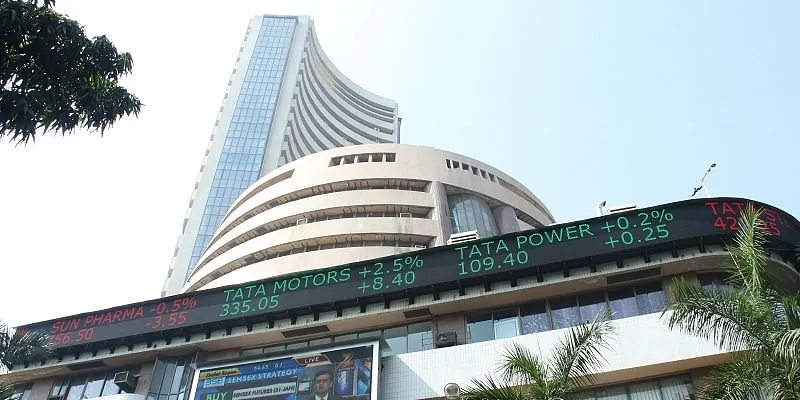BSE is on a mission to get startups listed on its dedicated platform
The stock exchange is continuously engaging with the startup community to encourage them to list on its platform.
The stock markets are on a high and this has opened the door for the new economy companies, especially technology-enabled startups to look at a public listing.
The successful listing of startups such as , and has inspired several startups. However, there is still hesitancy about this public foray, especially due to compliance worries. The country’s oldest stock exchange – – has created a separate listing trading platform for small & medium enterprises (SMEs) and startups to encourage firms in this segment to access equity funds.
In an interview with YourStory, Ajay Thakur – Head of BSE SME & Startups platform – says he believes the stock market is the best place for startups to access funds to grow their business and is the destination where maximum wealth creation is possible.
Edited experts:
YourStory (YS): What was the reason behind creating an SME & Startup platform on BSE?
Ajay Thakur (AT): There was a demand that stock exchanges be created for SMEs to list with different eligibility criteria and compliance requirement. So that once they are listed and grow, they can migrate to the mainboard. SEBI (Securities Exchange Bureau of India) rolled out the guidelines in 2010.
BSE become the first exchange to launch a stock trading platform for SMEs on March 13, 2012. During that period the financial literacy was low in the country especially on equity funding or capital market. It took almost about three years to convince all the stakeholders to work on the SME platform.
Today, we have 354 SMEs listed on this platform who have cumulatively raised Rs 3750 crore with a market capitalisation of Rs 40,500 crore. Though the size of SMEs which got listed is still less we expect over time many more will come in the future.
We have kept the eligibility criteria very simple. The company should have paid-up capital below Rs 25 crore, it needs to be existence for a minimum period of three years with an operating profit in any one of the year, the net tangible assets should be Rs 1.5 crore. In our country there is a lot of fears about compliance requirements, so we kept these norms simple.
We have got 33 percent of the companies from the SME platform who have migrated to the main bourse and the promoters have realised that compliances are good for them.
YS: How was the startup category added to this platform?
AT: We have understood the importance of startups and the kind of role they are playing in the new economy, so in December, 2018 we launched the platform for them which became operational in August 2019. Till now around 12 startups have been listed which are all technology companies and another 5-7 are in the pipeline.
All startups do not get angel, VC or private equity funding and they can now raise funds from our platform. The criteria for startups is that they have to be registered entity which is operational for a minimum period of two years with a positive networth. In case they are not registered, it has to have a minimum paid up capital of Rs 1 crore.

Today, we are seeing investors' risk appetite increasing and if the market has to grow, it will be with old and new economy together.
YS: How is BSE reaching out to these startups or SMEs to get them to list on the platform?
AT: The approach we are taking is to create awareness among the promoters and making them understand the benefits of a public listing. Also, we are connecting them with others in the ecosystem like merchant bankers, chartered accountants etc.
We want to nurture these SMEs and startups and just because they do not get funding does not mean they are running a bad business. We have also opened the platform for all kinds of investors be it PE, VC, retail, HNIs and startup can raise funds from them. They can also migrate to the main bourse if their paid capital crosses Rs 10 crore with market capitalisation of over Rs 25 crore and approval from two-third of non-promoters.
Once they migrate to the main bourse, they are on par with any other company and their exposure will keep on increasing. We are creating a smooth and seamless ecosystem.
YS: What have been key asks from startups?
AT: The first requirement for these startups is funding and the second thing that happens is that investors get an exit as there is liquidity in the system. These startups also get higher visibility with other advantages like access to pure equity funds, the balance sheet becoming stronger, availability of liquid ESOPs and investors can enter and exit at any point in time. These are some of the advantages which are not available in the unlisted space.
YS: How is BSE enabling this ecosystem of public listing for startups?
AT: In the last one-and-half year, the capital market has deepened and widened with more than eight crore investors. Investors are also getting more mature and BSE is constantly creating awareness through lot of programmes. We believe that market is well poised to provide funding to all these companies.
YS: Which kind of investors are participating on this platform?
AT: They are from everywhere – retail, QIBs (qualified institutional buyers), HNIs (high net worth individuals) and all of them have started investing into the SME & startup platform. We believe it is a golden opportunity for SMEs and startups to list where they can grow their business as they get access to all types of funds. Three years ago, people were talking about startup ecosystem but it was not widespread but now we are seeing the traction. We engage with SMEs and startups on a continuous basis and also get the investors to see them. This will also unlock the value by way of getting listed and raising funds.

YS: What challenges do you see when startups want to go for public listing?
AT: Sometimes the expectation are on the higher side where the investor may or may not agree. This is the main challenge. Secondly, there is still a lot of fear about compliances as many promoters believe their attention will shift from business to managing these requirements. We are working hard on these areas to convince them. There is another challenge related to financial literacy because most of the promoters are technocrats but now there is awareness and are receptive to ideas.
Our endeavour on a constant basis is to do whatever best we can do for the SMEs and startups as funding is very much an essential part of any business. This is one place where maximum wealth creation happens.
Edited by Affirunisa Kankudti









